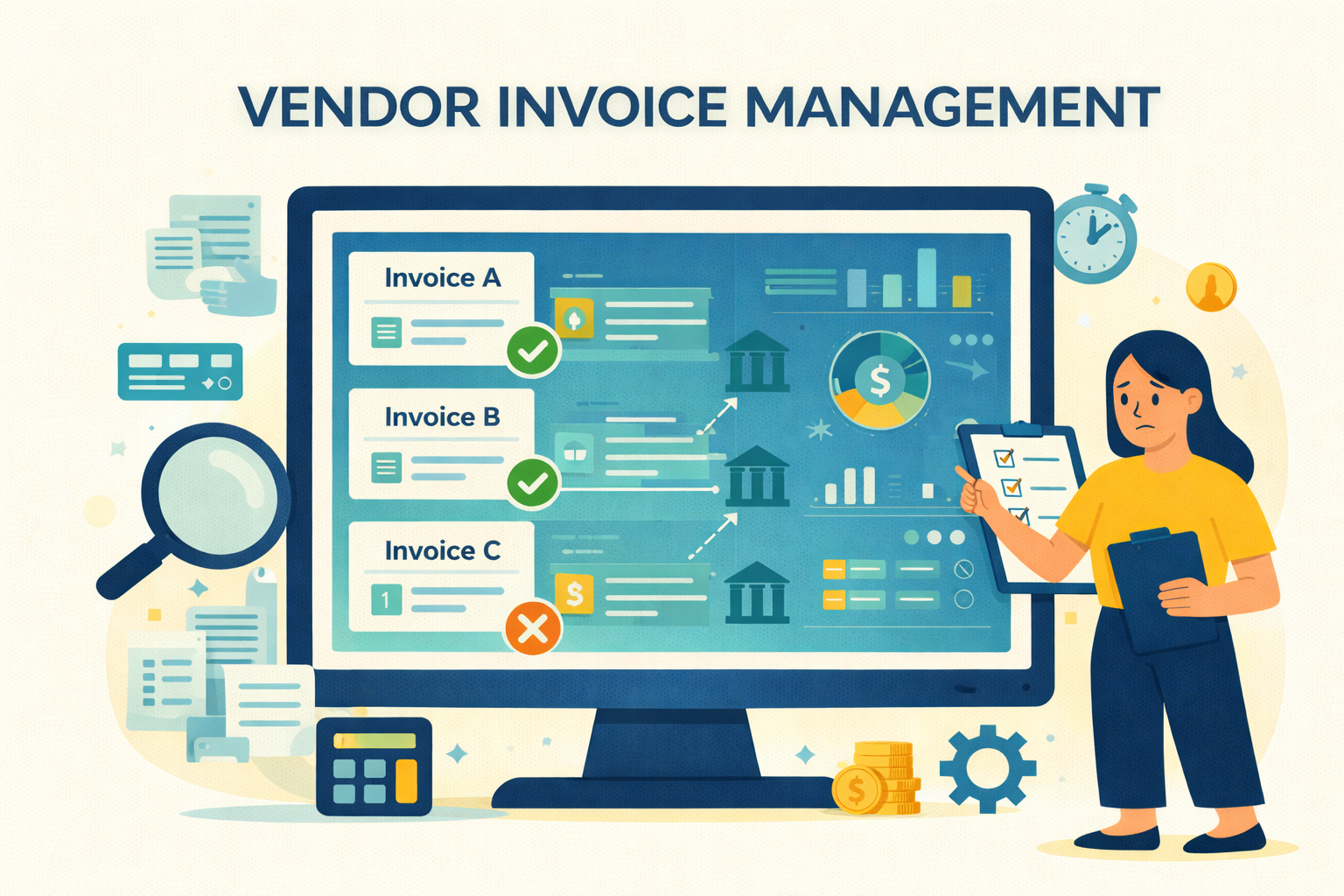What Is an FBO Bank Account and Why It Matters for Automated Reconciliation
Whether you're a fintech platform, a SaaS company handling user funds, or a business managing multiple sub-accounts, managing payments for numerous users can become complicated quickly. This is where FBO (For Benefit Of) bank accounts come in. These are specialized accounts held by a business on behalf of its users, allowing money to be collected, stored, and managed under one account while keeping individual user balances separate behind the scenes.
Understanding FBO accounts is essential for enabling smoother, faster, and more transparent financial operations. Let's take a closer look at what FBO accounts are, how they work and why they matter so much when it comes to automated reconciliation.
What this blog covers:
- What an FBO account (“For Benefit Of” account) is and how it functions in banking and fintech.
- How FBO accounts allow a business or platform to manage funds on behalf of another party (beneficiary) without owning the funds.
- Typical use cases: fintech platforms, pooled customer accounts, sponsor banking arrangements.
- Key benefits: regulatory coverage, operational efficiency, segregation of funds.
- Major risks and considerations: compliance obligations, fund ownership clarity, auditability.
- How automation and reconciliation tools (like Osfin) support managing funds and accounting in FBO structures.
What is an FBO Account?
An FBO account is a specialized type of bank account held by a business to manage payments on behalf of other entities. FBO stands for ‘For Benefit Of’.
Since, FBO accounts co-mingle funds from different sources reconciliation becomes extremely critical. Automated reconciliation coupled with financial platforms like Osfin is the key as manual reconciliation increases the probability of errors.With automated reconciliation, each transaction is effectively linked to a specific user within the platform's system enabling,the business to automatically match incoming payments to the right person. That means no spreadsheets, no manual cross-checking, and fewer errors.
How Do FBO Accounts Work?
Let's understand the working of an FBO bank account via a simple example:
Imagine a tutoring platform that collects payments from parents and distributes them to tutors. Instead of opening a separate bank account for each tutor (which in itself can be a logistical and compliance nightmare), the company uses a single FBO account. It tracks each tutor's earnings within its system via a virtual ledger. When a parent makes a payment, the system instantly identifies the tutor it's for and reconciles it immediately.
Legal Structure of FBO Accounts
An FBO account is structured uniquely to reflect the separation of legal and beneficiary ownership of the account. An FBO bank account requirements are as follows:
1. Account Setup
A business, such as a payment platform or an investment platform, sets up an FBO account at a bank and specifies the beneficiaries.
2. Naming Conventions
The naming of the bank account is such that it reflects the ownership and purpose of the deposited funds.
3. Deposits
Depending upon the operational model of the business or platform setting up the account, money can be deposited in the account by:
- Business itself
- Beneficiaries
- Authorized third party with a valid reason for fund deposit
4. Recordkeeping
Each FBO account includes a recordkeeping structure to reconcile funds to appropriate beneficiary accounts.
5. Operational Control
The business or platform setting up the FBO account is also responsible for managing the account and handling its operations, including making and transferring payments, as well as investing.
6. Regulatory Compliance
The transactions associated with an FBO account must comply with specific regulatory standards to protect the beneficiary's funds.
7. Legal Ownership
Beneficiaries have legal ownership of the account, not the business managing the funds.
8. Beneficiary Access
Beneficiaries do not have direct access to the FBO account. Their interaction with the funds in the account is governed by the terms and conditions specified by the business responsible for managing the account.
9. Account Statements
The handling business is obligated to provide account statements to the beneficiaries detailing all transactions. Further, these account statements can be subject to audit to determine appropriate fund management by the business.
How FBO Accounts Differ from Traditional Bank Accounts
The table below summarizes the differences between FBO accounts and traditional bank accounts:
Common Uses of FBO Accounts

Some common use cases of FBO accounts are:
1. Escrow and Payments
- Real estate: FBO accounts are used in the real estate business to hold earnest money deposits, manage rental income (collecting from tenants and depositing to property owners), and hold property tax payments until the payment deadline.
- E-commerce: FBO accounts are commonly used by e-commerce marketplaces to hold amounts paid by customers until they receive their orders.
2. Investment and Wealth Management
- Trust and Estates: Trusts commonly use FBO accounts to hold and manage funds, ensuring appropriate distribution to the beneficiaries according to the trust or will.
- Investment Funds: Investment funds utilize FBO to pool money received from multiple investors into a single fund, which is then used to create a diversified portfolio.
3. Fintech and Banking
- Payment Platforms: Payment platforms used by processors utilize FBOs to facilitate transactions between businesses and customers. FBOs are used here to hold funds until a transaction is verified temporarily.
- Digital Wallets: Digital wallets utilize FBO to hold the user's funds and provide them with access to banking services, such as fund transfers, payments, and savings while maintaining segregation of ownership and control.
Benefits of Using FBO Accounts

The FBO bank account benefits for businesses or platforms include:
1. Regulatory Compliance
An FBO bank account provides a business or platform managing money from multiple beneficiaries with the necessary regulatory coverage via the bank in which the account is opened. Without an FBO account, these businesses or platforms would have to obtain the required licenses to operate as money transmitters, which is a time-consuming process.
2. Streamlined Payments
For businesses that rely on payment platforms to handle payments from multiple customers, FBO accounts offer a convenient alternative to opening multiple bank accounts, streamlining payments, and reducing manual overhead. This also extends to international payments in multiple currencies.
3. Automated Reconciliation
In an FBO account, each transaction is tagged to a specific user or sub-account in the platform's backend, allowing the system to match incoming and outgoing payments automatically. This eliminates manual tracking, reduces reconciliation errors, and enables real-time visibility. This is similar to how Osfin automates the reconciliation process with high accuracy by eliminating manual intervention.
4. Seamless Scaling
FBO accounts offer an efficient and secure alternative to maintaining multiple bank accounts for different customers, enabling businesses to scale rapidly. In essence, scaling of your business is no longer restricted by banking bottlenecks.
5. Simplified Recordkeeping
Since all transactions are consolidated into a single account, recordkeeping and reporting are simplified. Furthermore, your business has a centralized account that allows you to view all transactions, balances, and statements. The time and resources required to manage finances at a high level are reduced significantly with FBO accounts.
FBO Account in Practice: A Real-World Example
Let's consider a freelance marketplace platform, TalentLink, that connects businesses with independent contractors. The platform needs to collect payments from the contractors and distribute them to thousands of freelancers globally. TalentLink encounters the following challenges in their operations:
- Opening thousands of international accounts is slow, costly, and non-scalable.
- Manual intervention lowers the accuracy of reconciliation.
To overcome this problem, TalentLink opens an FBO account with Wells Fargo, a banking provider. Now, when a contract pays a certain amount to TalentLink, the amount lands in TalentLink's FBO account Wells Fargo. The internal sub-ledger (maintained by TalentLink in their system) automatically identifies the receiver and reconciles the payment. In future, when the number of freelancers and contractors increases, TalentLink can scale up without the hassle of adding more client accounts.
Why Is Osfin the Smart Choice for FBO Account Infrastructure?
If your business is seeking a modern, compliant infrastructure to manage, transfer, and reconcile funds at scale, consider Osfin. Here's a list of reasons that make Osfin a smart choice for businesses looking for the FBO bank account benefits:
- Automated Reconciliation: Offers a low-code platform with over 170 integrations, enabling the quick and accurate handling of millions of transactions.
- Scalable: Enables your business to scale effortlessly.
- BFSI-Focused Workflows: Supports banking-specific processes like EMI collections, UPI/NACH, and partner settlements.
- Regulatory compliance: Ensures compliance with essential regulations like SOC 2, GDPR, ISO 27001, PCI DSS, and SSF while leveraging 256-bit encryption to safeguard sensitive data.
{{banner1}}
Conclusion
As businesses grow more digital and customer-focused, the need for precise, scalable, and compliant financial infrastructure becomes non-negotiable. FBO accounts have emerged as a powerful solution, enabling platforms to manage user funds with clarity, automate reconciliation, and remain regulatory-ready without becoming banks themselves.
Businesses looking to take their scalability and reconciliation to the next level via FBO accounts should consider Osfin. Osfin embeds financial services with confidence by combining the legal reliability of FBO account structures with automation, smart ledgering, and enterprise-grade security. Whether you're building a marketplace, a lending app, or a payroll platform, Osfin helps you manage money the right way: transparently, efficiently, and at scale.
{{banner2}}
FAQs on FBO account
1. What is an FBO account?
An FBO account is a specialized type of bank account held by a business to manage payments on behalf of other entities.
2. What are FBO bank account requirements?
An FBO account requires the specification of beneficiaries and the nature of the fiduciary relationship at the time of account setup.
3. Who can access the FBO account?
The account holder (business managing the account) has access to the FBO account, but beneficiaries don't have direct access. However, the beneficiaries remain the legal owners of the FBO account.
4. Is FBO different from a traditional bank account?
Yes, an FBO bank account requires segregation between the account holder and the account's beneficiaries, which is not the case with a traditional bank account.
5. Is an FBO account a trust account?
An FBO account is not technically a trust account. However, some similarities do exist between the two types of accounts.


